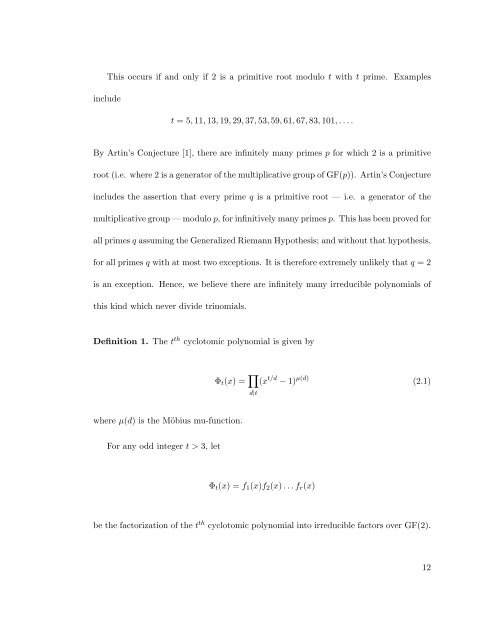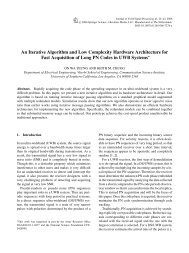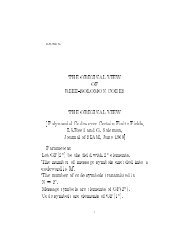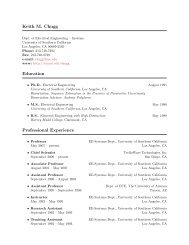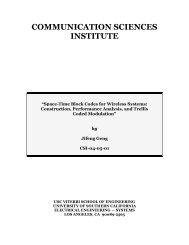Irreducible Polynomials Which Divide Trinomials Over GF(2). - The ...
Irreducible Polynomials Which Divide Trinomials Over GF(2). - The ...
Irreducible Polynomials Which Divide Trinomials Over GF(2). - The ...
- No tags were found...
Create successful ePaper yourself
Turn your PDF publications into a flip-book with our unique Google optimized e-Paper software.
This occurs if and only if 2 is a primitive root modulo t with t prime. Examplesincludet = 5, 11, 13, 19, 29, 37, 53, 59, 61, 67, 83, 101, . . . .By Artin’s Conjecture [1], there are infinitely many primes p for which 2 is a primitiveroot (i.e. where 2 is a generator of the multiplicative group of <strong>GF</strong>(p)). Artin’s Conjectureincludes the assertion that every prime q is a primitive root — i.e. a generator of themultiplicative group — modulo p, for infinitively many primes p. This has been proved forall primes q assuming the Generalized Riemann Hypothesis; and without that hypothesis,for all primes q with at most two exceptions. It is therefore extremely unlikely that q = 2is an exception. Hence, we believe there are infinitely many irreducible polynomials ofthis kind which never divide trinomials.Definition 1. <strong>The</strong> t th cyclotomic polynomial is given byΦ t (x) = ∏ d|t(x t/d − 1) µ(d) (2.1)where µ(d) is the Möbius mu-function.For any odd integer t > 3, letΦ t (x) = f 1 (x)f 2 (x) . . . f r (x)be the factorization of the t th cyclotomic polynomial into irreducible factors over <strong>GF</strong>(2).12


